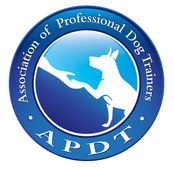|
Most dog owners - even ones who have never trained their own dogs - have in mind a list of behaviors that they think all dogs should know. Sit, lay down, stay, and come when called are usually at the top of that list. Leave It is another core behavior that many trainers teach; it seems important, especially for the service dogs that I train, but it’s one that I almost never teach. And for good reason. Dogs are inherently curious, and enjoy investigating everything, by touching it or grabbing it in their mouthes. But the human world is covered in things that are dangerous for dogs to touch or mouthe, or that are simply valuable to us. Leave It is often seen as a solution: trainers tell you that you should be able to say Leave It and your dog will stop doing whatever it is he was about to do. But here’s the trouble with Leave It: it doesn’t tell the dog what *to* do. “Don’t touch that” doesn’t give the dog information about what you want him to do. And it doesn’t give you a specific behavior to reward when he does successfully Leave It.
Say “Sit” - the dog puts his tushie on the ground - we tell him “good boy” You and your dog will be most successful with training when you follow this formula, as you and the dog both communicate clearly about what you want and what he can do to make you happy. But if we apply this formula to Leave It: Say “Leave It” - the dog *stops* - is that good enough? Leave It expects the absence of a behavior. And the absence of a behavior can’t easily be rewarded. And here’s another thing: Let’s say you’ve trained Leave It and your dog knows what to do when you say Leave It. He knows that if he does the right behavior he will get a reward: attention from you, praise, petting, maybe even a treat. Well, dogs are smart and can figure out that if they want a reward, all they have to do is make you say Leave It. And how do they make you say Leave It? By doing the thing you don’t want them to do in the first place.
What’s the alternative? Don’t reward when he obeys your Leave It cue? Guess how long he’ll continue obeying your Leave It cue if you stop praising him for doing so? Instead of training Leave It, there are a couple of better options:
Leave It can work for some dogs in some situations. But if you’ve been frustrated about your dog not obeying when you say “Leave It,” maybe it’s time to look at other training options. As always, feel free to contact Elizabeth at any of Alabama Dog Academy’s social media platforms, or click the Contact button below!
2 Comments
Imagine you’re a child, and a grownup has done something very bad to you. You’re hurt, you’re confused, you’re scared. Then you’re taken to an office where you know you’re going to have to bring up the awful memories again. The grownups at the office are all nice, but you still don’t want to be there.
But for a lot of dog owners, it’s difficult to think about your dog being away from you for any period of time. Board and Train is definitely worth it for certain dogs, to improve their quality of life and the quality of their families’ lives; but is it right for YOUR dog?
No doubt you’ve seen drama on social media about disreputable dog trainers. These posts beg the question: How do you find a good dog trainer? How do you know that the trainer has your and your dogs’ best interests in mind and will give you the best training advice? The fact is, dog training is a completely unregulated business. Literally anyone can print out business cards and make an Instagram page and call themselves a professional dog trainer. There is no required licensing, certifications, or accreditations; there are stricter requirements for dog boarding kennels and breeders than there are for dog trainers. The industry is completely dependent on the “Buyer Beware” philosophy. Here are some traits that are important in a good dog trainer:
I Can't Feed my dog People Food!As a trainer who encourages using treats to train dogs, I often hear that dog owners think they shouldn’t feed “people food” to their dogs. Let’s talk about some of the common misconceptions:
Every few years......a new reality show about dog training pops up on TV. Personally, I have a love/hate relationship with these shows. On one hand, watching a show about training helps people think more about working with their own dogs; but on the other hand, training can look very different on TV than it is in real life, and people end up with unrealistic expectations of what it’s like to train their dog.
After watching at least one episode of probably every dog training reality show that’s been aired, here are a few take-aways I hope you keep in mind as you’re watching these shows: Why dogs can be aggressive around food, and what you can do to fix it.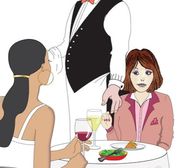 "I KNOW you're not going to take my last bite of cheesecake!" "I KNOW you're not going to take my last bite of cheesecake!" You’re at a restaurant, treating yourself to yummy food and engaging conversation with your friends. You’re eating slowly to fully savor your food. With only two precious bites left on your plate, you set your fork down to take a sip of your drink. Like a flash, your perky waiter appears, asking, “May I take your plate?” As he reaches toward your plate, somewhere in the deepest part of your mind you visualize shouting and stabbing his hand with your fork to make him leave your food and go away. But then your rational human mind takes over, and you smile and touch the edge of your plate, politely replying, “No thanks, not quite done.” He walks away; but you make sure that next time he comes around, you have your fork in your hand to make sure he knows that you’re still eating. If you're like most humans, you probably think that it’s rude to take away other people's possessions. We don’t steal food off each other’s plates, it’s against the law to take someone’s wallet. We have locks and security systems to protect everything from our cars and houses to our cell phones, and the bulk of our cash is secured in a bank. I’ve heard of roommate relationships that are ruined over stolen toilet paper. As kids we learn not to sit in Grandpa’s comfy chair or use Mom’s makeup without permission. If it’s so natural to understand to respect others’ possessions, then why do I, as a dog trainer, get these calls all too often:
|
AuthorElizabeth Morgan specializes in training service dogs as the trainer and owner of Alabama Dog Academy. Archives
January 2024
Categories |
|
256-434-1747 (call or text)
[email protected] |
Proudly powered by Weebly


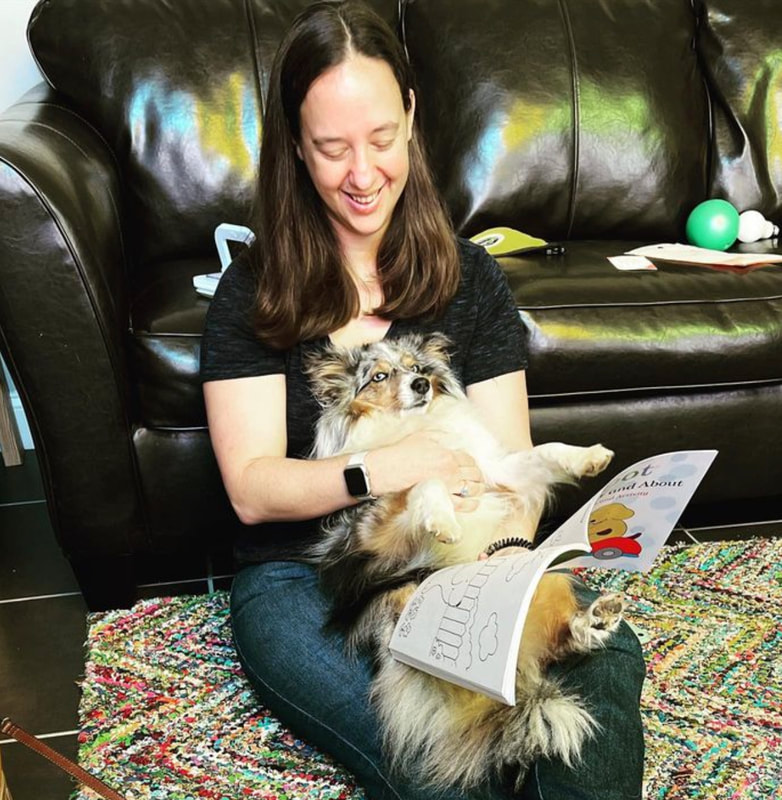
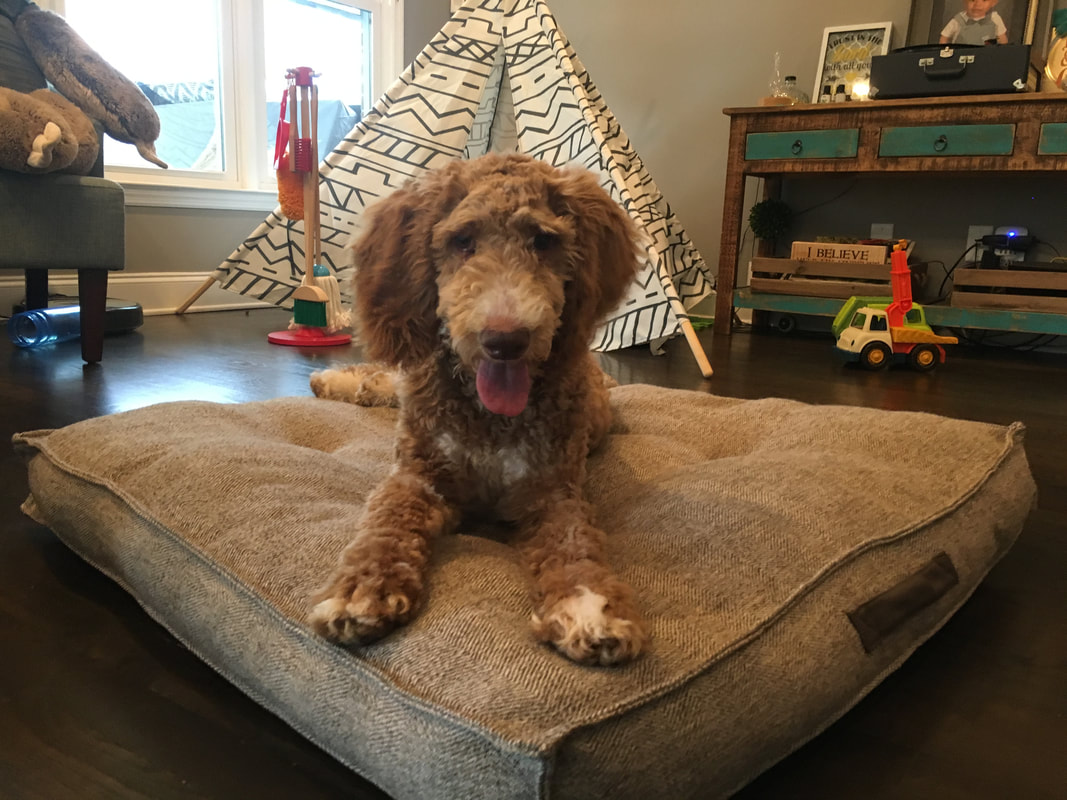
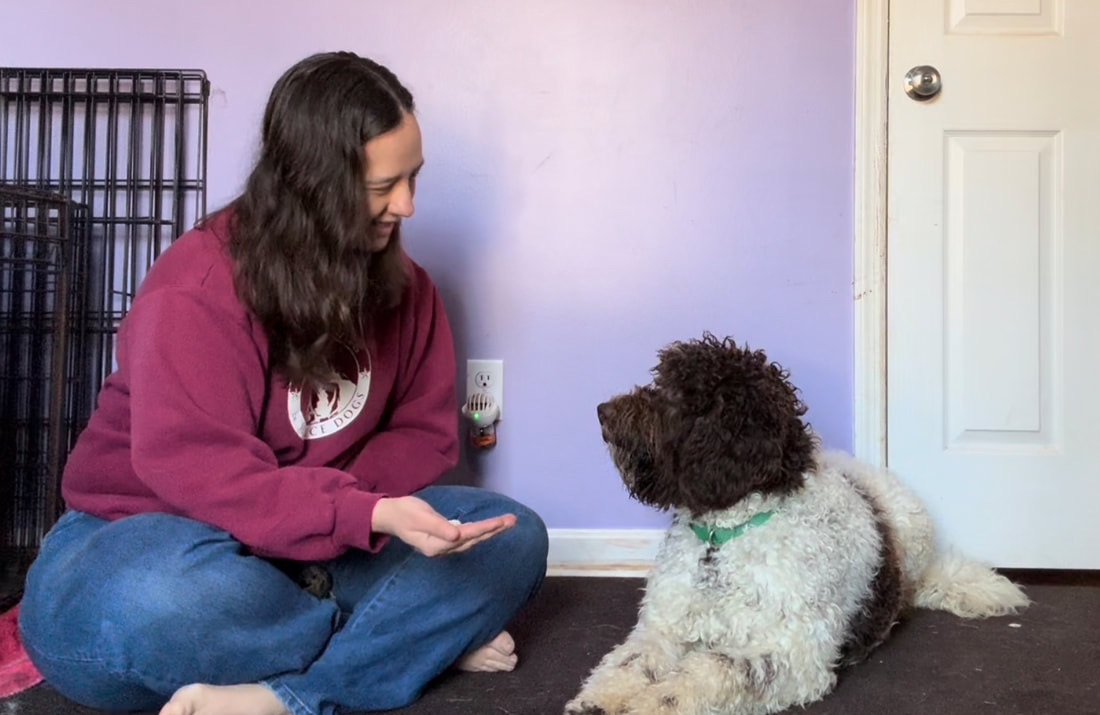
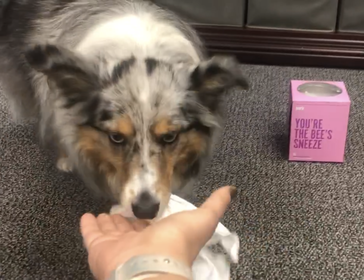
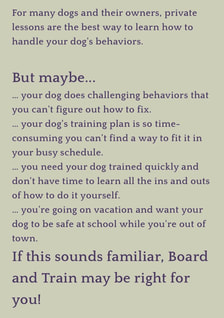
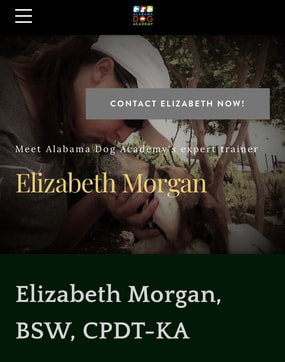
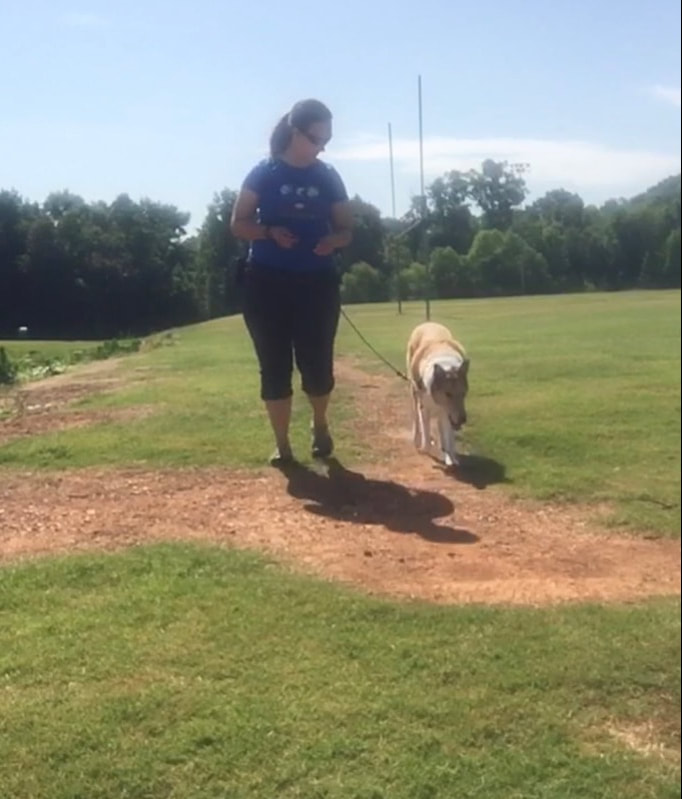




 RSS Feed
RSS Feed


